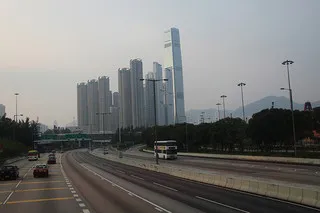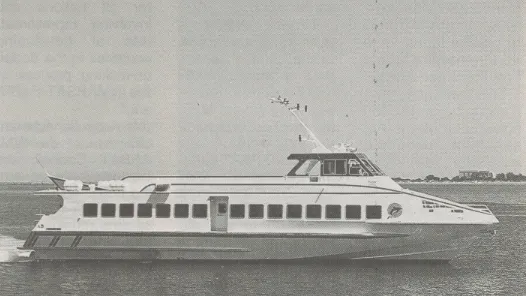
Hong Kong 10th priciest place for expats in Asia Pacific
It's been beaten by Singapore.
Hong Kong is the 10th most expensive location for expatriates in Asia Pacific and 28th globally while Seoul has overtaken Tokyo to take top spot in the region.
According to a release from ECA International, these are among the findings of the company's latest Cost of Living survey.
The SAR dropped just one spot in the Asia Pacific ranking over 12 months and has been overtaken by Singapore. Globally it has risen one place and is now more expensive than the Swedish city of Stockholm.
“Prices in ECA’s Hong Kong basket of goods and services typically purchased by expatriates increased 4.5 per cent in the past twelve months,” said Lee Quane. Regional Director – Asia, ECA International. “Nevertheless, Hong Kong’s position relative to other locations in the region, and globally, has remained steady.”
ECA carries out two main cost of living surveys per year to help companies calculate cost of living allowances so that their employees' spending power is not compromised while on international assignment. The surveys compare a basket of like-for-like consumer goods and services commonly purchased by assignees in over 440 locations worldwide.
Living costs for assignees are affected by inflation, availability of goods and exchange rates, all of which can have a significant impact on assignee remuneration packages. Certain living costs, such as accommodation rental, utilities, car purchases and school fees are usually covered by separate allowances. Data for these costs are collected separately and are not included in ECA’s cost of living basket.
Here's more from ECA International:
Seoul has overtaken Tokyo to become Asia Pacific’s most expensive location for expatriates. Globally, the South Korean capital is in 10th position – up from 22nd place a year ago – while Tokyo, the world’s most expensive location for expatriates just two years ago, is now 12th globally.
“While prices of items in ECA’s shopping basket have increased in South Korea at a faster rate this year than last year, inflation remains low relative to the rest of the region,” said Quane. “What has had more of an impact on costs for many employees on assignment there is the appreciation of the won. It strengthened 15% against the yen in the 12 months between surveys and over 8 percent against the US dollar and the euro.”
However, Seoul’s rise up the ranking it is also due to the economic situation in Japan which has caused Tokyo to fall in the list.
“Economic policies to counter deflation in Japan have contributed to the price of goods and services in ECA's shopping basket rising around 4 percent, more than 5 times the rate they did 12 months ago,” continued Quane. “Assignees based in Japan will have noticed this and probably expect to see their pay package increase. However, another impact of Abenomics is that the yen has depreciated significantly against other major currencies, and this has more than outweighed any inflation.”
Shanghai and Beijing, the 3rd and 4th most expensive locations in Asia Pacific for expatriates respectively, are both now in the top 15 globally.
“Despite slower growth in China, the price of items in ECA’s shopping basket rose faster this year than last and Chinese locations continue to rise in the ranking,” said Quane. “As the imported goods and brands expatriates are familiar with become more readily available, particularly in the second tier cities, this is also contributing to price rises within our basket since these items are usually more expensive than the local brands.”
“However, with fears now that China, like other parts of the world, could experience deflation, and with little chance of its controlled currency depreciating and boosting import prices, we may well see Chinese locations fall down the rankings in the near future – although prices in second tier cities for goods popular with expatriates are likely to rise for a while yet.”
Indian locations have seen some of the region’s biggest movement in the ranking with the cost of living there for many international assignees having gone up significantly in the 12 months between surveys. The rupee has appreciated significantly against the US dollar and euro pushing up costs for expatriates despite prices in ECA’s shopping basket increasing at a slower rate this year than last year. New Delhi in 199th position globally has risen 34 places while Mumbai (224) jumped 18 spots.
Malaysian locations have also risen notably up the ranking with Kuala Lumpur climbing 29 places to 176th position in the global ranking.
Singapore has overtaken Hong Kong in this latest survey, moving up from last year’s 31st position to become the 26th most expensive location for expatriates. The price of items in ECA’s shopping basket for Singapore rose just over 4 percent over the year – up from last year’s 2.7 percent figure.
Locations in Australia have risen in the ranking although are still below the highs they reached a couple of years ago. Sydney is in 29th place – just below Hong Kong. Costs in New Zealand for many international assignees have increased at a faster rate than in Australia, largely due to the strength of the dollar there. Auckland is in 36th position globally up from last year’s 54th spot.
Karachi, Pakistan, is the cheapest location surveyed in Asia Pacific.








![Cross Domain [Manu + SBR + ABF + ABR + FMCG + HBR + ]](https://cmg-qa.s3.ap-southeast-1.amazonaws.com/s3fs-public/styles/exclusive_featured_article/public/2025-01/earth-3537401_1920_4.jpg.webp?itok=WaRpTJwE)









 Advertise
Advertise


